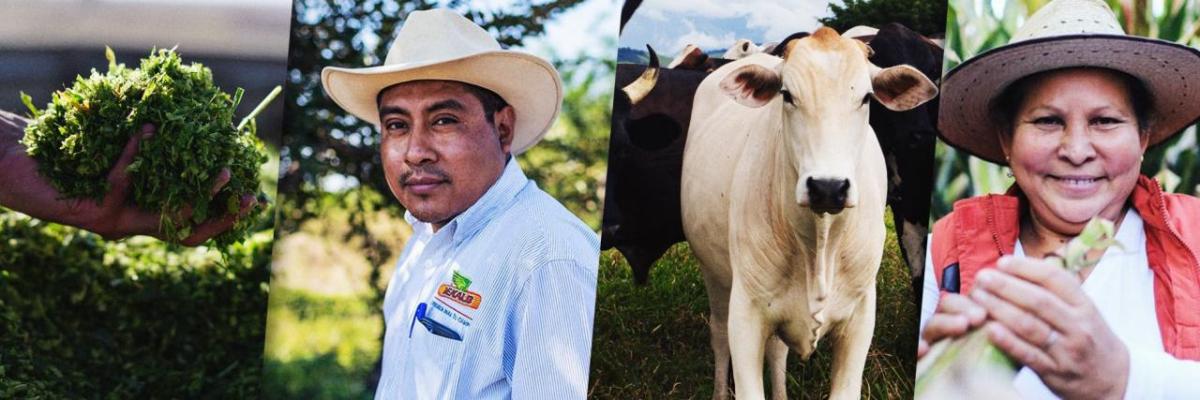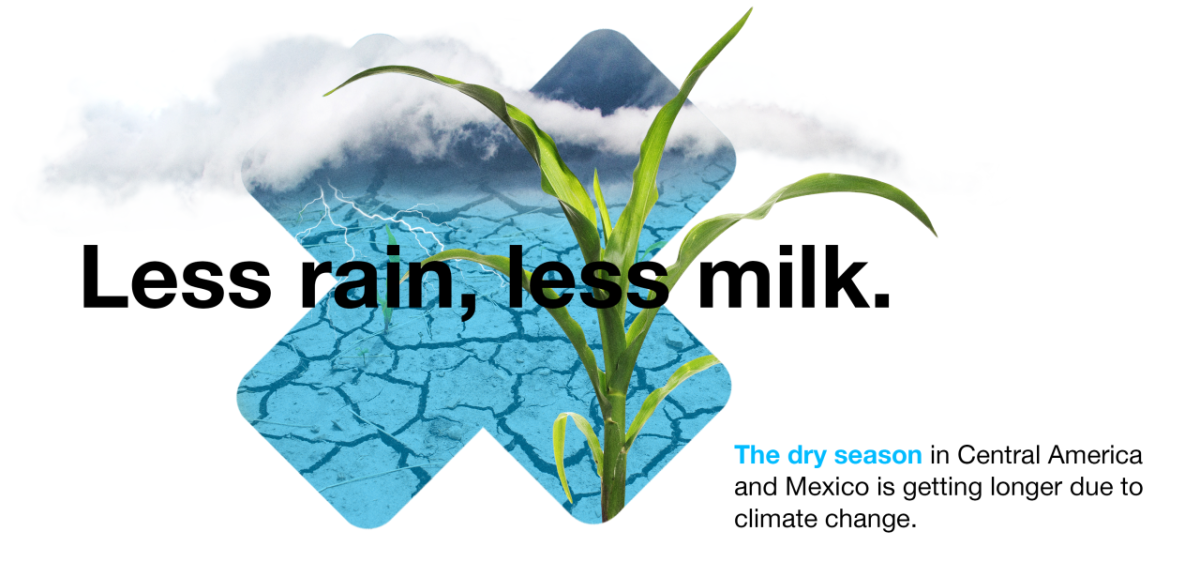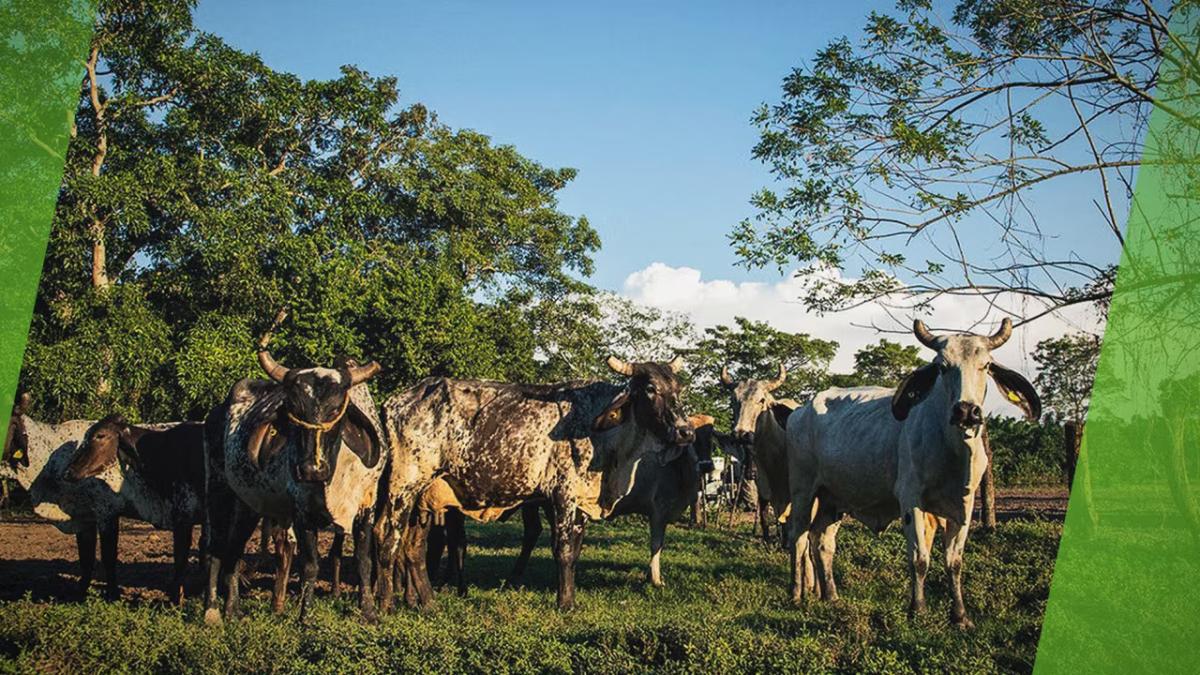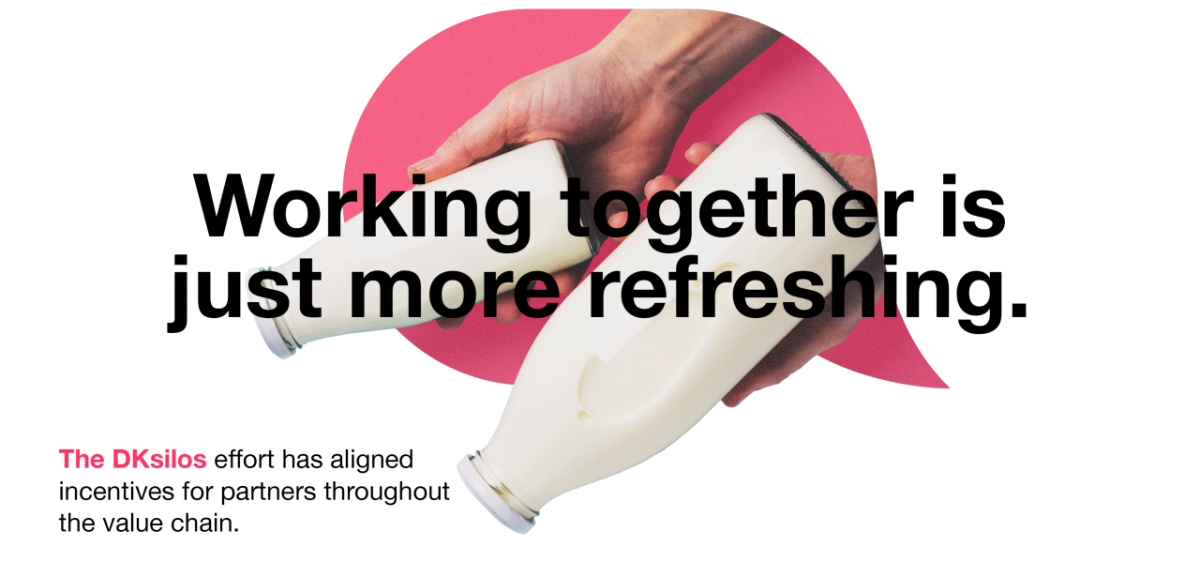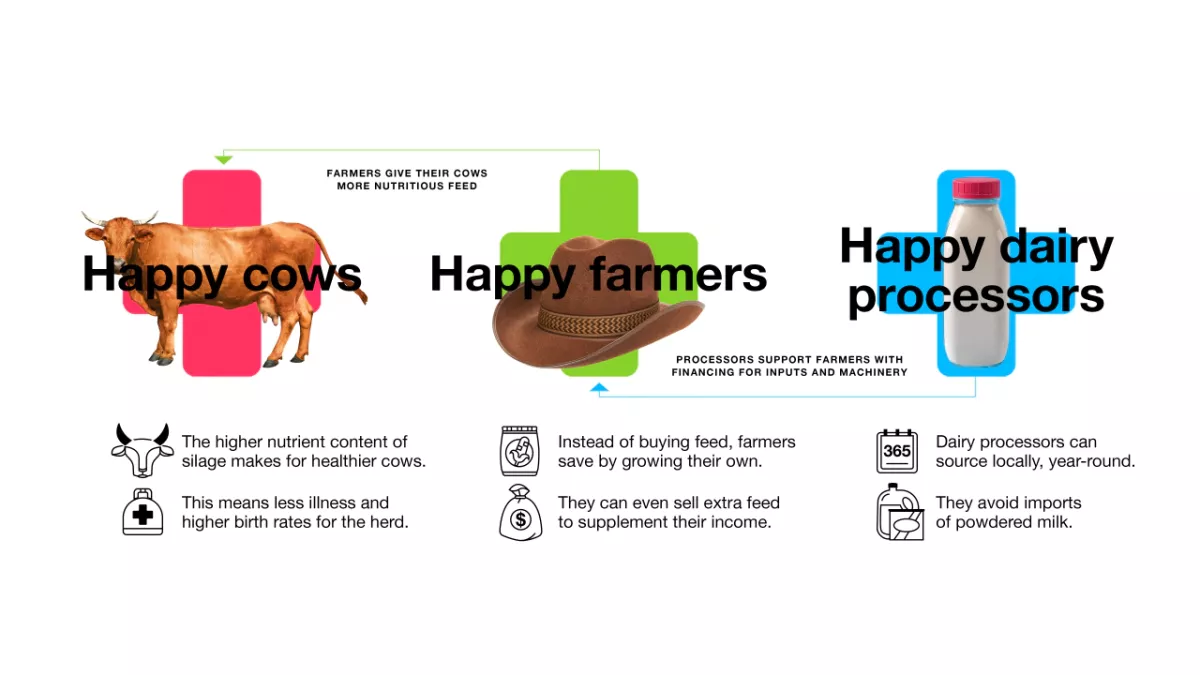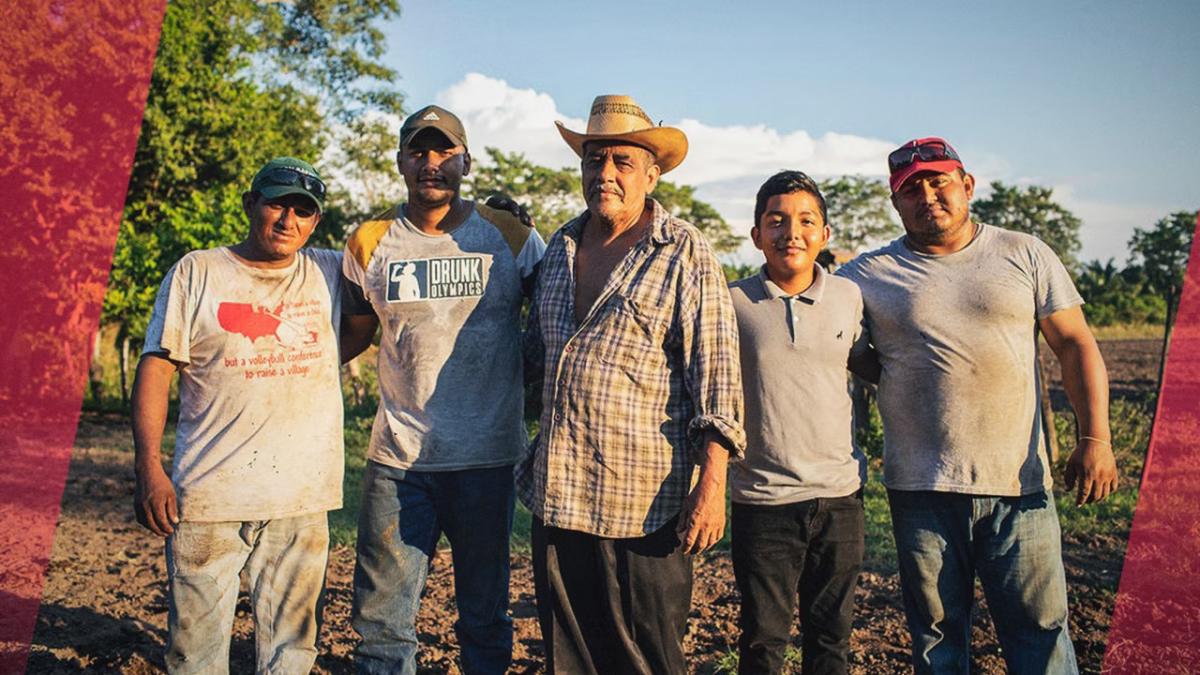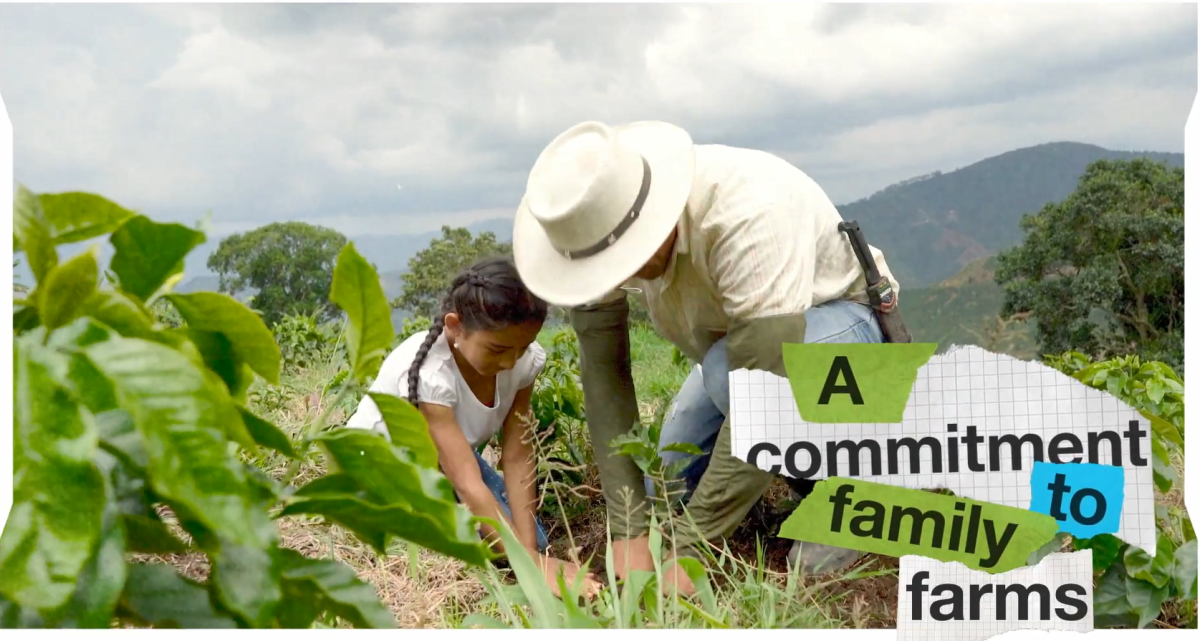DKsilos Is the Crop of the Cream
Bayer isn’t in the cattle business. At least, we weren’t. That was before we started asking big questions about small farms. Questions like: What do small dairy farms in Latin America need to thrive? What are their pain points? And, how is global warming changing their business?
Why dairy?
For low-income farming families in Central America and Southeast Mexico, raising cattle and selling dairy can help keep food on the table. The livestock economy also bolsters regional food security, bringing nutrition to the most vulnerable, especially women, children and the elderly.
But it’s hard to raise dairy cows in the local climate. Every year, the dry season slows milk production. And climate change is making it worse.
During droughts, the grass dies, and cows have little to eat. They lose weight, birth fewer calves, and suffer poorer health, all while the demand for dairy remains constant.
Bayer saw an opportunity to help. What if dairy farmers planted corn during the rainy season? They could store crushed corn plant material, called silage, and save it for the next dry season. They wouldn’t have to rely on grass. Maybe they could even sell the excess crop.
Keep innovating.We mustn’t just carry on with the basics, but go looking for alternatives. One of the alternatives for improving livestock is silage.
— Donaldo Polanco, Dairy Farmer|Cortés, Honduras
But they weren't corn farmers.
If this project was going to work, the dairy farmers needed access to know-how and technology they had never had access to before. DKSilos corn is perfectly bred to thrive in the region and give dairy cows the nutrition they need to live healthy, productive lives. Next, they needed financing to purchase necessary equipment and farming inputs like seed, fertilizer and pest control.
Caring for healthier cows through partnership.
That’s more than Bayer could do alone, so we asked others to join in and help these farmers keep their cattle fed and productive. Partners included Lacthosa Sula, a large Honduran dairy processor, and major dairy offloaders. Through these alliances, farmers got access to technicians with agronomy backgrounds, Bayer supervisors, training, financing, and distribution outlets.
Fortunately, I had all the advice and support from planting to harvest, until my silo was covered.
— Hernán Molina Acero, Dairy Farmer|Pijijiapan, Mexico
The program has been running for seven years, reaching over 40,000 farmers throughout Southeast Mexico, Guatemala, Honduras, Nicaragua, Costa Rica, Panama and the Dominican Republic. And the average farmer makes about $5,000 USD more per year by adopting these practices.
And those are only the human benefits. Healthy, well-fed animals are enjoying the corn silage as well. Cows are experiencing less sickness and better pregnancy and birth rates.
Enabling smallholder farmers is key to battling hunger in low and middle-income countries. That is why we’re transforming our business at Bayer to provide tailored solutions that empower 100 million smallholders by 2030.
View original content here

